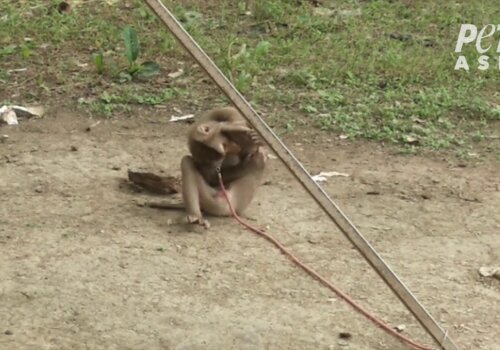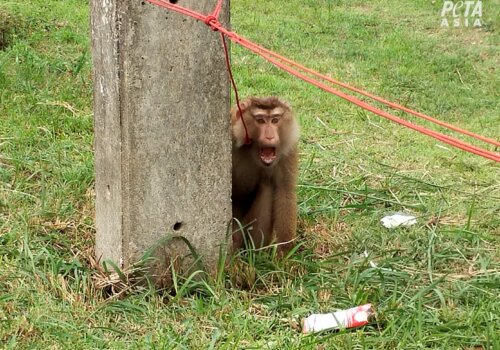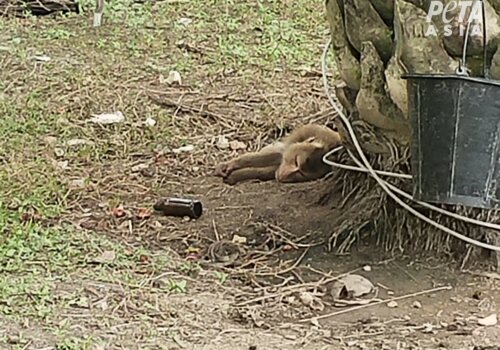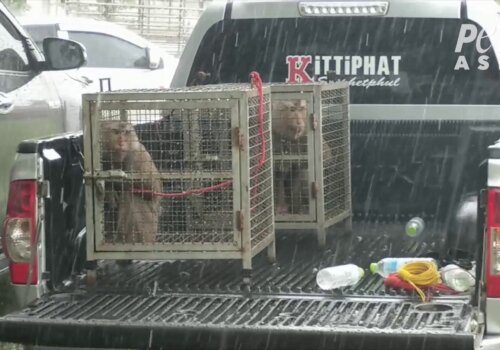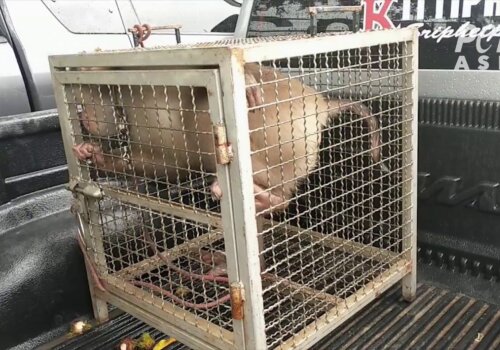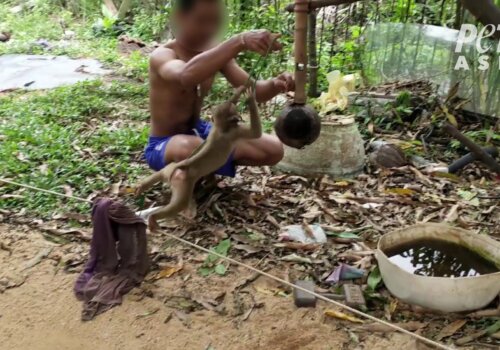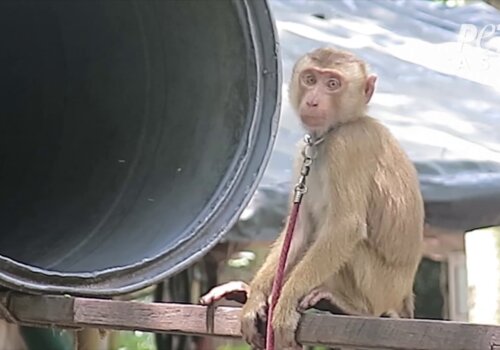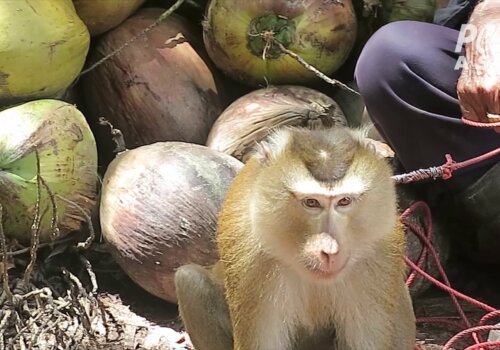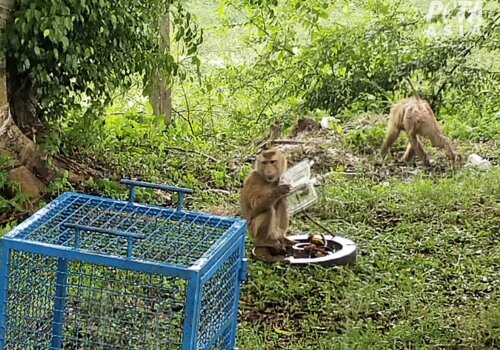Were monkeys forced to pick your coconuts?
Update: 6 January 2021
Over a year after PETA Asia visited coconut-picking regions in Thailand and found the use of forced monkey labour, a new PETA Asia investigation has now revealed that monkeys are still being used at many farms and that monkey schools and coconut-picking competitions using monkeys are still in operation. Even though retailers around the world stopped purchasing Thai coconut products, the Thai coconut industry – including Chaokoh and the Thai Food Processors Association – and Thailand’s ambassador to the US are actively misleading global brands and consumers about the continued use of monkey labour.
Many kind people choose coconut milk instead of cow’s milk because they don’t want to support cruelty to animals. But a disturbing PETA Asia investigation reveals that terrified young monkeys in Thailand are kept chained, abusively trained, and forced to climb trees to pick coconuts that are used to make coconut milk and other products.
Chained and Driven Insane
In 2019, PETA Asia investigators visited eight farms where monkeys are forced to pick coconuts – including those for Thailand’s major coconut milk producer, Chaokoh – as well as several monkey-training facilities and a coconut-picking competition. At each one, they documented that these sensitive animals were abused and exploited.
Following PETA Asia’s investigation, more than 35,000 stores will no longer purchase these brands’ products, and the majority will no longer buy any coconut products derived from Thailand monkey labour.
Many monkeys are reportedly illegally abducted from their families and homes when they’re just babies. They’re fitted with rigid metal collars and kept chained or tethered for extended periods.
Denied the freedom to move around, socialise with others, or do anything else that is important to them, these intelligent animals slowly lose their minds. Driven to desperation, they pace and circle endlessly on the barren, trash-strewn patches of dirt where they’re chained.
Cruelly Trained and Teeth Pulled Out
The terrified young monkeys are forced to perform frustrating and difficult tasks, such as twisting heavy coconuts until they fall off the trees from a great height. An investigator learned that if monkeys try to defend themselves, their canine teeth may be pulled.
To earn more money off these animals, some trainers also force them to participate in circus-style shows in which they entertain paying visitors by riding bicycles, shooting basketballs, and performing other confusing and demeaning tricks.
An investigator saw monkeys being transported in cramped cages that were barely large enough for them to turn around in and others left in locked cages in the back of a pick-up truck, with no shelter from the driving rain. One monkey was seen frantically shaking the cage bars in a vain attempt to escape.
Tethered by the neck with a metal collar, the monkeys are forced to climb up and down trees and collect coconuts.
No Tropical Paradise
A PETA Asia investigator was told by a worker at one farm that it supplied coconuts to brand Chaokoh. If you purchase Chaokoh products, you may inadvertently be supporting this cruelty.
Coconuts can be harvested using humane methods such as tractor-mounted hydraulic elevators, willing human tree-climbers, rope or platform systems, or ladders. Dwarf coconut trees can also be planted. Studies have shown that these methods are superior to using monkeys, who can’t distinguish between ripe and unripe fruit, and the ripe coconuts get bruised when the monkeys drop them to the ground. Coconut water typically comes from coconuts grown on dwarf trees, including the Nam Hom variety, and harvesting them doesn’t involve monkey labour – but this isn’t always the case. PETA Asia has confirmed that Harmless Harvest is among the companies that don’t use monkey labour for coconut water.
PETA India invites any Thailand-based coconut companies to provide evidence that they don’t use forced monkey labour.
Take Action Now!
Please, make sure that your coconut products don’t come from any companies that exploit monkeys. Sign below to urge Chaokoh to stop supporting this cruel industry by obtaining their coconuts from companies that don’t use monkeys.
Personalised letters always work best. Feel free to use the sample letter provided, but keep in mind that your letter will carry more weight if you write your own customized message and subject line.
